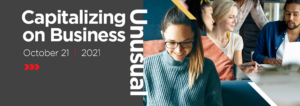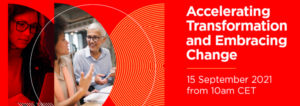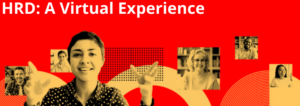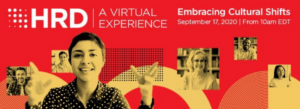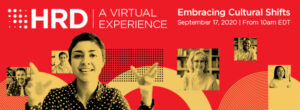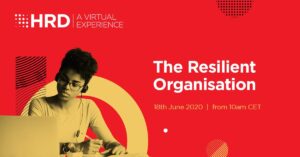HRD: A Virtual Experience Global - event summary - Dulux Group, Microsoft, NBC, and more
- 6 Min Read
On November 19th 2020, we returned with HRD: A Virtual Experience – Channeling Dynamic Disruption, the fifth installment of our virtual event series. This 100% online event boasted another packed agenda adorned with influential speakers and industry-leading brands. For those who couldn’t make it, here are our highlights from the day.
- Author: HRD Connect
- Date published: Nov 26, 2020
- Categories
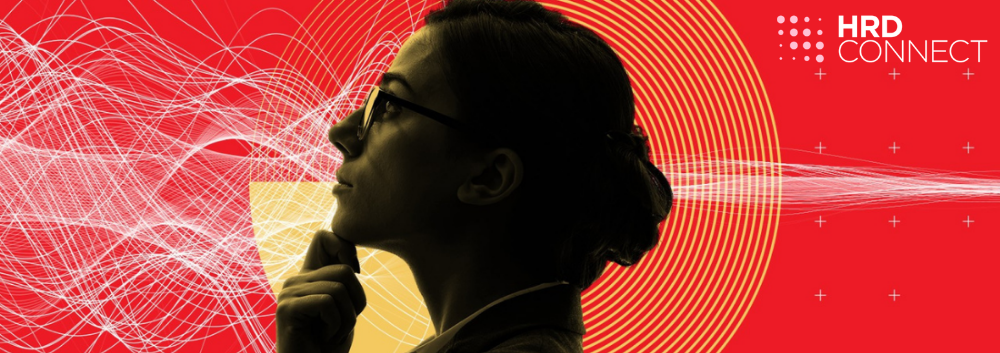
With many of the world’s major regions now enduring a second wave of COVID-19, it may be time to accept that ‘post-pandemic’ is not a term that should feature in the corporate vocabulary just yet. This said, in order for businesses to continue striving for success, the HR function must persevere through the disruption.
This is a principle that lies at the very heart of what we do at HRD, and that’s why we made haste in returning for the fifth installment of our new virtual HR event series.
As always, in order to deliver the the level of organic, actionable insight for which our conferences are famed, we employed a wide array of influential speakers from reputable brands, and saw thousands of delegates pour through the virtual gates to attend.
If you were unable to attend on the day or simply need a recap, here are some highlights and top takeaways from the day’s program.
Keynote: Rebooting resilience – Bruce Daisley
In a severely disrupted year, so many of us have quietly wished for our teams to be more resilient. But what if the whole idea of resilience is a myth and actually ends up causing even more problems? In our first and arguably most anticipated keynote session of the day, former Twitter VP and google director Bruce Daisley tackled this subject head-on, telling us where we’re going wrong with the concept of resilience and how a clear answer could yet save 2021.
Key takeaways:
- The office provided us with the opportunity to meet more efficiently and create team cohesion. With the loss of that, we have arguably lost the “network effect”
- As a result of the disruption, the term ‘resilience’ has become common
- However, resilience is not something that an individual can achieve. Research shows that this is something that we draw from feeling connected to others
- There are three core elements of resilience: Feeling in control; having a clear notion of identity; and having a collective sense of community
- Resilience is far more likely to be cultivated and fostered among workforces if these criteria are met.
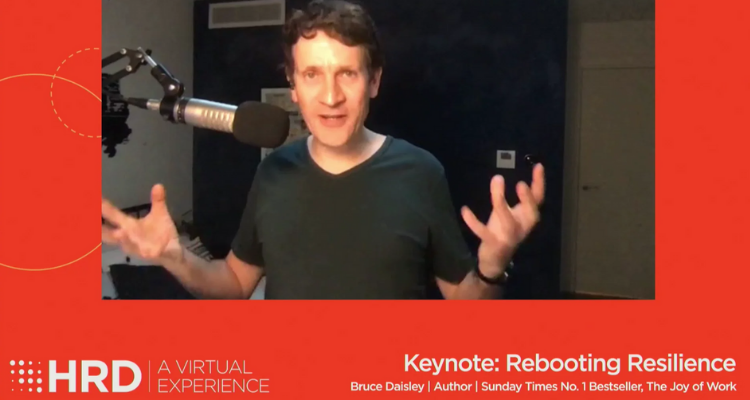
View the full session here.
Panel: Driving digital transformation through strategic HR – Microsoft, ING Bank, AB InBev
The events of this year have highlighted just how essential digital transformation is for business continuity. This is something that is just as much about people as it is about technology, meaning HR is in a critical position to be the driving force behind such change. How can HR leaders build a culture that ensures buy-in from your people and enables rapid transformation? How can you measure ROI and assess the impact on your business and employees? This was the topic of discussion for our second panel of the day, featuring representatives from AB InBev, Microsoft and ING bank, alongside author and consultant, Soumyasanto Sen.
Key takeaways:
- Many companies are pursuing digital transformation today, but it also involves changing the organization’s culture, mindset, and employee behaviors
- In its unique position and as a driver of internal change, there’s the possibility that 2020 will be the decade of HR
- Due to ever-evolving conditions, HR leaders see their digital transformations as akin to a journey
- A process of continuous learning and agility may force HR to consciously incorporate analytics and innovation into its functions
- HR can play an important role in contextualizing data, helping other parts of a business to understand findings and adopt appropriate solutions.
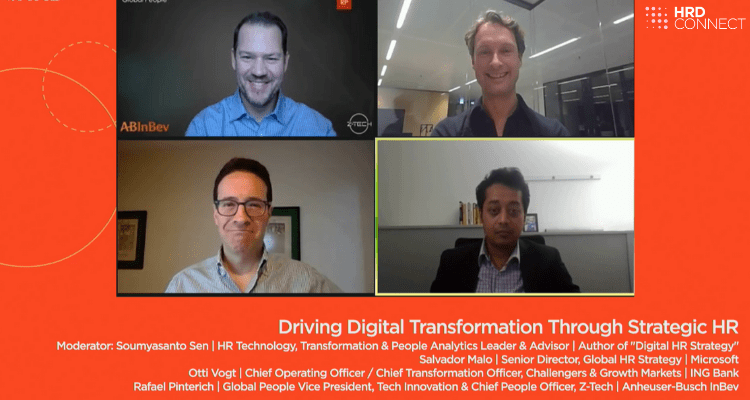
View the full session here.
Panel: The human workplace and the new employment deal – Hyatt Corporation, Atrium Health, Colombia Business School
We’re living in a conscious moment – what it means to work and live, what organizations should stand for and who they serve are all up for debate. We have a unique opportunity to create a new employment deal by building workplaces and models to suit everyone. But how can we realize the potential for advancements in accessibility, equality, and individuality in our working lives? With representatives from Hyatt Corporation, Atrium Health and Colombia Business School alongside HRD Thought Leader Chuck Heaton, this is what was discussed in our first panel session of the day.
Key takeaways:
- Mental health issues, exacerbated by the Coronavirus pandemic, are a huge cause of concern for HR leaders, particularly in cases of burnout
- Additionally, the political and social issues of recent times have caused a new concern over the issue of equality
- Businesses are building up their internal processes, such as promotion schemes, in order to empower staff members
- Inclusivity is a core concern, but challenges remain on how to encourage it due to the nature of the pandemic
- Due to remote working, there’s a risk that days feel like extended meetings, rather than the experience of being at a workplace.
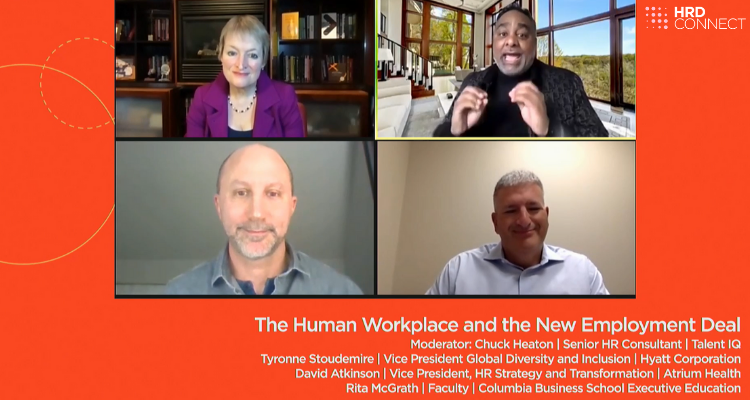
View the full session here.
Keynote: HR’s role in disruptive times: creating more adaptive workplaces – Dulux Group
In these disrupted times, organizations direly need to adapt their workplaces in order to adjust to ‘the new normal’. In a nutshell, the key to doing this lies in creating a more adaptive culture within the company; this means a new toolkit to shift the underlying patterns in the culture. In this keynote ksession, Dulux Group’s executive general manager of people, culture and chance, Siobhan McHale, shared her four-step solution to creating workplaces that can deliver, grow and adapt.
Key takeaways:
- Nokia possessed the technology to eclipse Apple in the smartphone market, but failed to adapt due to its: culture of complacency; lack of diversity; and non-collaborative culture
- Just as patterns exists in nature, they also exist in organizations and are deeply embedded at the heart of workplace culture. Leaders must be able to recognize these patterns in order to bring about change
- Relationships and performance are equally important when it comes to creating a healthy culture and achieving organizational success
- It cannot be HR’s job alone to fix the culture in an organization; each part of the company plays a role
- Culture is not simply about values and behaviors. In order to create an environment in which the organization can grow and adapt successfully, culture change must be a much more holistic and harmonious exercise.
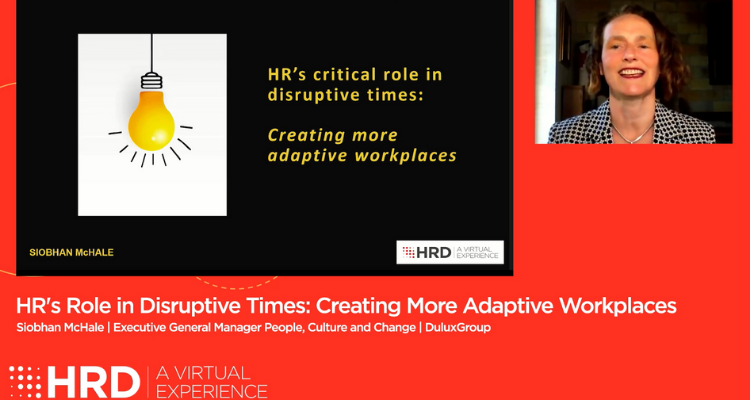
View the full session here.


